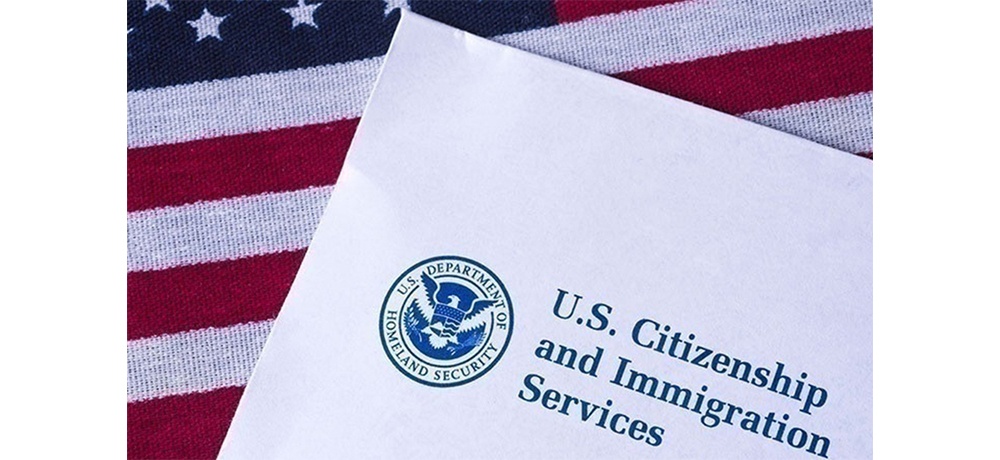
USCIS Updates Policies to Improve Immigration Services
Categories: Attorneys , Business Immigration , Business Law , Citizenship , Commercial Litigation , Commercial Transactions , Corporate Law , Green Cards , Immigration Law , International Law , Investment Visas , Law Firm , Lawyers , Legal Services , Real Estate , Software Agreements , Technology Law , Trusts And Estates
Link: https://www.uscis.gov/news/news-releases/uscis-updates-policies-to-improve-immigration-services
Pasricha & Patel
US Citizenship and Immigration Services (USCIS) has announced new updates to the USCIS Policy Manual. The updates clarify the circumstances and criteria for expedited processing, determine the circumstances in which reviewing officers should issue Requests for Evidence (RFEs) and Notices of Intent to Deny (NOIDs). Additionally, the new updates extend the validity period for new and renewal employment authorization documents (EADs). According to the USCIS, these changes are consistent with the intent of Executive Order 14012 to improve US immigration services. Changes to the Policy Manual are designed to alleviate processing delays and reduce burdens on applicants.
What are the Changes?
The changes to the USCIS Policy Manual comply with Executive Order 14012, “Restoring Faith in Our Legal Immigration Systems and Strengthening Integration and Inclusion Efforts for New Americans,” that was issued by President Biden on February 2, 2021. The Executive Order instructs federal agencies to formulate inclusive strategies and eliminate barriers that inhibit access to immigration benefits.
In accordance with Executive Order 14012, the USCIS Policy Manual has been updated with four key changes:
- Expedited processing
- RFEs
- NOIDs
- EADs
The USCIS update regarding expedited processing clarifies the relevant criteria and circumstances for expedited processing. Specifically, USCIS Policy Manual clarifies what it considers to be an “emergency situation” that warrants expedited processing. For example, an emergency can include a critical need to travel for medical treatment in a short period of time. Also, where a vulnerable person’s safety may be compromised due to a breach of confidentiality if there is a delay in processing of the benefit application warrants expedited processing for an “emergency situation” as well. Other situations where USCIS may consider an expedite request includes if it would cause severe financial loss to a company or person, provided that the need for urgent action is not at the petitioner/applicant’s own fault for not timely filing the request or for not timely responding to any requests for additional evidence. The updated guidance also clarifies that expedited processing for noncitizens’ applications is coordinated between USCIS and US Immigration and Customs Enforcement (ICE) in cases where applicants have final order of removal or are involved in removal proceedings. Additionally, nonprofit organizations whose request is in furtherance of the cultural and social interests of the United States may request that a benefit be considered for expedited processing, even if premium processing is available for that benefit.
Regarding RFEs and NOIDs, USCIS will return to its original June 2013 memo policy and principle that instructs officers to issue RFEs in cases of insufficient evidence before denying the cases altogether, except in limited circumstances where the benefit requestor could not overcome findings of ineligibility by submitting additional evidence. USCIS rescinded and replaced this initial policy in 2018 with stricter guidance that allowed officers to deny benefit requests for lack of initial evidence without first issuing an RFE or a NOID.
Finally, the USCIS Policy Manual updates will address EAD validity periods. USCIS will extend the validity of initial and renewal EADs to two years for adjustment of status applicants based under INA 245. Though most adjustment of status applicants are based on INA 245, not all applicants apply for adjustment of status based on INA 245. Certain other federal laws (for example, the Liberian Refugee Immigrant Fairness (LRIF) law described in Section 7611(b) of the National Defense Authorization Act 2020, Pub. L. 116-260 (PDF) provide other bases for applicants to adjust status to lawful permanent residence.
Currently, new and renewal EADs for most adjustment of status applicants have one-year validity, the new update extends the validity to two years. The change is designed to alleviate processing delays and the number of employment authorization requests that USCIS receives. In return, this allows USCIS to divert resources to other priority areas. It is also intended to reduce the burden on individuals who are awaiting adjudication of their adjustment of status applications.
These policy changes and updates are part of the Biden administration’s efforts to improve the USCIS customer service function and help reduce the anxiety of many applicants who have faced various filing challenges in the past few years. The hope now is that the USCIS will continue to introduce additional improvements to the filing process to make this even more customer friendly.
We encourage readers to continue to check back with our site for any updates and changes to the USCIS rules and guidelines. Should readers have any specific questions about their own cases, we encourage you to contact our office for formal consultation.